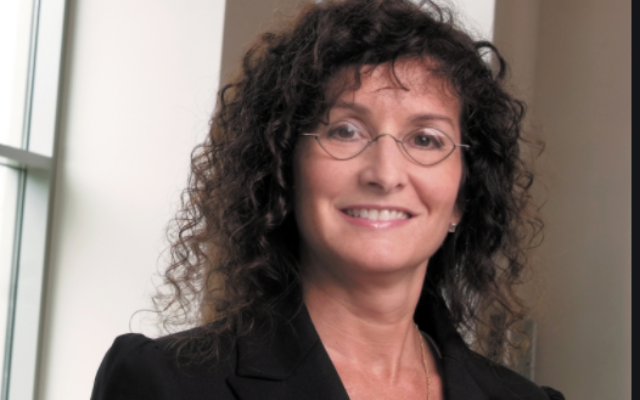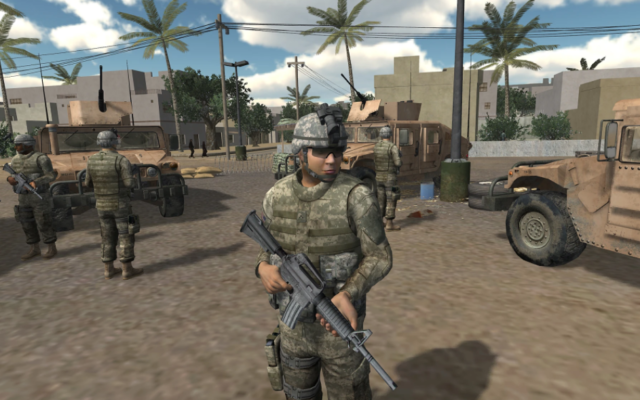Emory Professor Wins Award for PTSD Research
Lifetime achievement award is for work with veterans and others in helping them face their fears.

Barbara Rothbaum, a professor of psychiatry at Emory University and leading authority on post-traumatic stress disorder (PTSD), has been named this year’s recipient of a lifetime achievement award by medical researchers working to advance treatments for traumatic stress.
The award was presented at the annual meeting of the International Society of Traumatic Stress Studies on Nov. 5, in recognition of Rothbaum’s work on innovative psychological treatments for PTSD, especially digital virtual reality tools that have become familiar to fans of video games.
Rothbaum, who has been working in the field since 1985, described the award as recognition not just for developing new tools to treat PTSD, but also for trying to make these tools more effective.
“The main thread running through my work is trying to develop new treatments or making our existing treatments better and figuring out new ways to do that.”
Rothbaum is generally considered to be a pioneer in the successful use of computer-generated virtual imaging.

PTSD affects up to 8 million U.S. adults every year; but it is particularly Rothbaum’s work on treating military veterans that has received the most attention.
Her research in the late 1990s was the first to demonstrate that three-dimensional graphic technology could be used to help Vietnam combat vets who had treatment-resistant PTSD. In the years since, Rothbaum has written over 300 scientific papers and published five books about PTSD, including a consumer guide to the disorder.
She describes the virtual reality techniques used to treat PTSD at Emory as an expansion of what psychotherapists call exposure therapy. She likens the formal experience that therapists use to guide a patient to the informal experience that many go through during the process of grieving in Judaism.
“There’s really no way to the other side of the pain and the grief process, except through it,” Rothbaum says. “Obviously, all of our rituals in Judaism actually help with that, the shiva and being together with the mourners and telling stories and having that time to grieve and these set periods that help people work through it. So with PTSD, we think that for various reasons, people avoid it because it’s painful, so they don’t think about it. And then they don’t get to emotionally process that. So it festers and it haunts them. And so our treatments for PTSD are what we call exposure therapies. So helping people to confront the memories of the trauma and reminders of it, but in a therapeutic manner so that something changes.”
Rothbaum’s research entails participants wearing devices that help to recreate the traumatic event as an immersive video experience. The therapist then guides patients through their emotions as they arise.
As executive director of the Emory Healthcare Veterans Program, Rothbaum has worked with the Veterans Administration and other stakeholders to deal with the surge in PTSD diagnoses among veterans who served in the Middle East and Afghanistan.

She uses a virtual reality program called “Bravemind,” which has been developed with funding from the National Institutes of Health. It’s an imaging program that Rothbaum says can simulate, in a variety of ways, almost any situation combat veterans have experienced in the course of American military operations of the past several decades.
“We can put that patient in the driver’s seat of a Humvee, we can have an IED going off on the right front, everything blowing smoke. And we just do it over and over and over as they’re telling the story with more and more detail. And it’s a potent stimulus. So they can see it. They can hear it. They can even smell it, as well. But the main part of it is so that their story changes as they go over and over it.”
The National Center for PTSD at the Department of Veterans Affairs says that these exposure therapies are “effective in 60% of veterans with PTSD.” As vets revisit their memories of traumatic experiences, they learn how to master their fears.
For Rothbaum, this is a lifetime achievement award of a totally different sort.
“I’m a believer in the resilience of the human spirit. I have seen people who have been through horrific experiences and, you think, how can someone get over this? And then they do. We have good treatments, and we can make them even better. But always I want there to be a message of hope.”
- Bob Bahr
- News
- Local
- PTSD
- Barbara Rothbaum
- Veterans
- virtual reality
- Emory University
- International Society of Traumatic Stress Studies
- exposure therapy
- immersive video experience
- Therapist
- traumatic event
- Patient
- Emory Healthcare Veterans Program
- Veterans Administration
- Middle East
- Afghanistan
- Bravemind
- National Institutes of Health
- National Center for PTSD at the Department of Veterans Affairs



comments